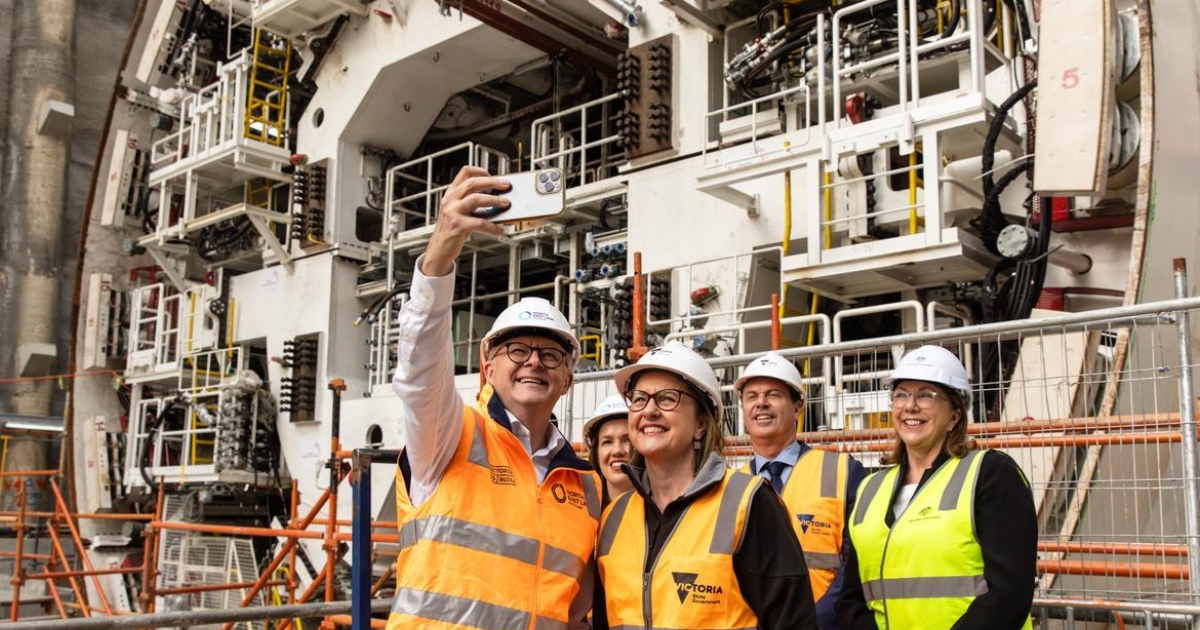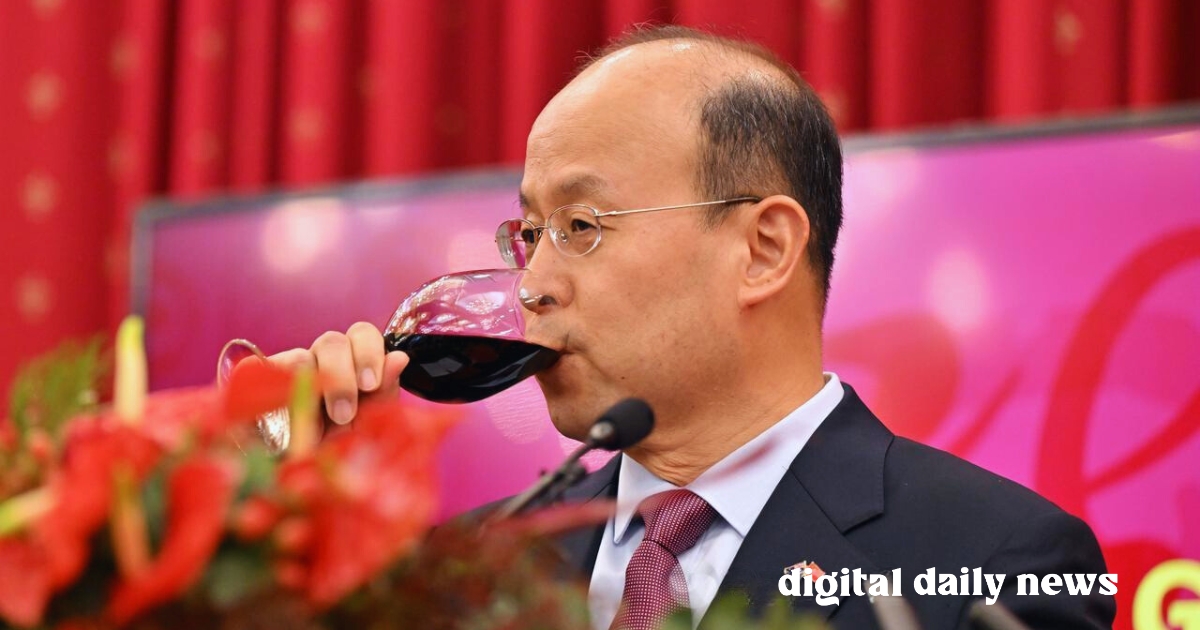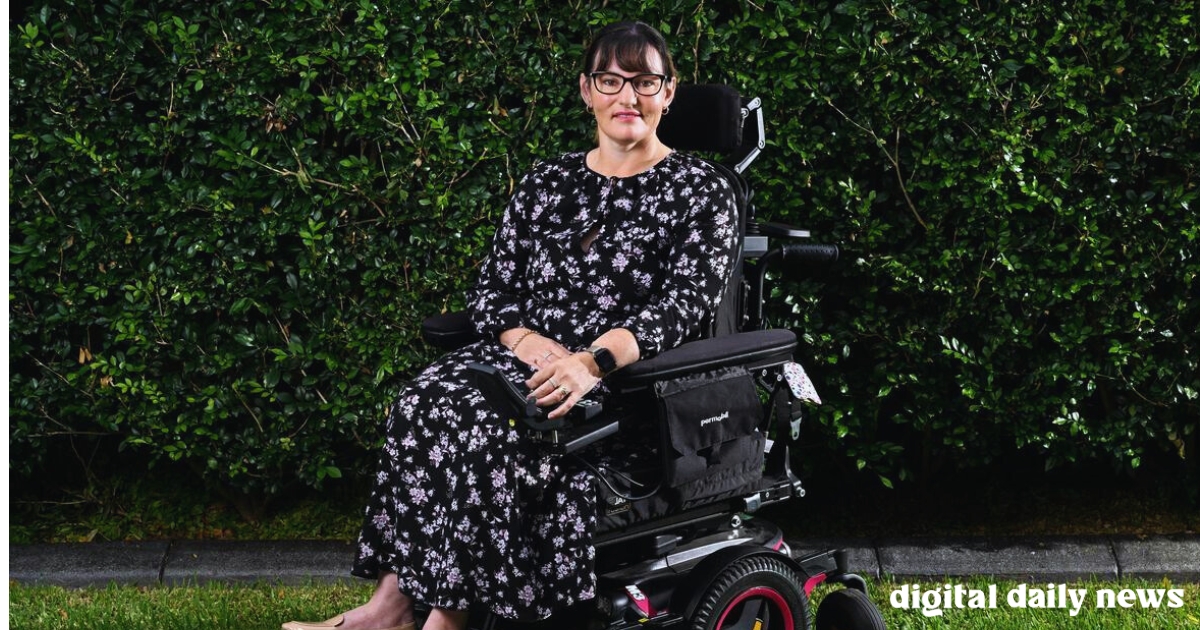Politics
Jobs boom beats expectations but weakness incoming

Stronger than Expected Hiring by Employers
Assuming economic activity is tapering, Australian employers have defied expectations with a stronger-than-expected hiring trend. Despite concerns, the labour market has shown resilience, surpassing government estimates.
Treasury’s Upgraded Employment Growth Expectations
Employers have upgraded expectations for employment growth in the coming year to a 2.25 per cent increase, a significant improvement from the initial 1.5 per cent projection. This reflects the ongoing resilience of the labour market despite economic tapering.
Another 150,000 jobs are expected to be created between now and mid-2025, indicating steady growth in employment. The government’s confidence in this growth is a positive sign for the job market moving forward.
Forecast for Job Growth and Unemployment Rate
Forecast suggests that while employment is expected to continue growing, the rate of growth may slow in line with a softening economy. With unemployment projected to tick up to 4.5 per cent by the June quarter of 2025, there are signs of potential challenges ahead for the job market. However, the initial data remains promising.
Outlook on future job growth and unemployment rates will depend on various factors, including economic trends, government policies, and global market conditions. It is crucial to monitor these developments closely to anticipate the future trajectory of the labour market.
Federal Budget Provisions for North East Link Project
Now, just days before the budget release, Prime Minister Anthony Albanese has confirmed a significant $3.25 billion allocation for Victoria’s North East Link road project. This funding commitment underscores the government’s focus on infrastructure development and job creation in key regions.
New Gas Policy and Support for Low Carbon Industries
To support Australia’s energy needs and boost key industries, the government has unveiled a new gas policy as part of the ‘Future Made in Australia’ industry policy. Minister Madeleine King emphasized the importance of gas in supporting manufacturing, food processing, and critical mineral refining to lower emissions and drive economic growth.
North, the gas strategy outlined in the budget aims to position gas as a crucial energy source beyond 2050, facilitating the transition to a more sustainable future while supporting key sectors of the economy.
Future Made in Australia Industry Policy
Policy, the ‘Future Made in Australia’ industry policy highlighted in the budget includes direct support for low carbon industries and businesses that serve the national interest. This strategic approach aims to boost innovation and sustainability across various sectors, driving long-term economic growth and job creation.
Provisions, under the ‘Future Made in Australia’ industry policy, will include targeted funding and incentives to promote green technologies, research, and development, aligning with the government’s vision for a more resilient and competitive Australian economy.
Resources Minister’s Remarks on Gas Strategy
While outlining the gas strategy, Resources Minister Madeleine King emphasized the crucial role of gas in supporting key industries and lowering emissions. The government’s focus on gas as an important energy source aligns with the goal of fostering economic growth and environmental sustainability.
Criticisms from Climate and Environmental Groups
You, climate and environmental groups have raised concerns about the government’s continued support for gas as an energy source through 2050. Despite acknowledging the role of gas in certain industries, critics argue for a stronger emphasis on renewable energy solutions to address climate change and reduce environmental impact.
Politics
‘Under the pump’: expenses help for battling families

Many Australians doing it tough can expect extra cost-of-living support in the federal budget. The well-flagged tax cut relief under the reworked stage three package will be the primary source of cost-of-living help but Treasurer Jim Chalmers says there will be other sweet spots as well. “We know that people are under the pump,” he told reporters on Monday, acknowledging the toll of still-high consumer prices and elevated mortgage repayments. “That’s why a central focus of this budget in eight days time will be cost-of-living help for people primarily through the tax system, but not only through the tax system, and also making sure that we’re doing what we can to put downward pressure on inflation.”
Students are in line for more financial support, with $3 billion of student debt to be wiped and paid placements for those doing nursing and other relevant degrees. Following stronger-than-expected March quarter inflation, economists have been warning too much budget spending could keep pressure on consumer prices and delay interest rate cuts. Dr Chalmers says cost-of-living relief can be designed in a way that takes pressure off inflation, like its energy bill relief last year.
Yet subsidised energy bills free up extra money in household budgets to spend elsewhere, pushing up the price of other goods and services, leading economist and budget expert Chris Richardson said. The government should try to avoid “poking the inflationary bear” by proceeding cautiously with extra spending, he said. Dr Chalmers defended his government’s record on managing inflation in the budget, arguing its earlier cost-of-living measures had brought prices down and recommending caution when focusing solely on “the quantity or the magnitude of spending in the budget”.
“The quality of spending, the timing and sequencing of that spending matters, as well as the quantity of that spending,” he said when asked if the budget would be contractionary in the upcoming financial year – that is, taking more money out of the economy than is spent. Shadow treasurer Angus Taylor said he had no doubt the government would keep spending. “This is why we’re hearing economists from many quarters coming out and saying they’ve got to stop the spend-a-thon … that will take pressure off this homegrown inflation,” he told Sky News.
Higher tax revenues over the past few years because of high commodity prices and a strong economy are likely to come down over the next five-year forecasting period. Tax revenue is expected to be $25 billion higher over that time period than when Treasury last updated its forecasts in December. Labor will bank about 95 per cent of the additional revenue, it says. Mr Richardson is forecasting a larger $41 billion revenue upgrade. The economist says Treasury has an incentive to be conservative “to give the treasurer of the day a series of happy ‘surprises’ on the budget front”.
Yet he agreed that revenue surprises were shrinking in size. “This trend is not our friend”, he said.
Politics
China drops heavy tariffs against Australian winemakers

Most recently, China has abolished heavy tariffs against Australian wine, marking a significant step towards improved diplomatic relations and trade ties between the two nations. The Chinese government had agreed to review the wine tariffs five months ago and has gradually unwound the trade barriers since then. The Commerce Ministry in Beijing announced on Thursday that it was no longer necessary to impose anti-dumping duties and other levies on imports of Australian wine.
Prime Minister Anthony Albanese expressed his gratitude for this development, stating that the re-entry of Australian bottled wine into the Chinese market will benefit both Australian producers and Chinese consumers. The removal of these tariffs comes at a critical time for the Australian wine industry, which had faced difficulties exporting to China due to the imposed trade barriers.
In 2019, Australian wine exports to China were valued at $1.1 billion before the tariffs were implemented during the height of diplomatic tensions in 2020. The removal of these duties means that Australia will no longer pursue legal action against China at the World Trade Organisation, which had been initiated by the former coalition government.
While the Australian government’s approach is to cooperate with China when possible and engage in its national interest, some trade barriers still remain. Chinese tariffs are still in place for Australian rock lobster and beef, and in 2020, Beijing imposed trade sanctions worth $20 billion on a variety of Australian products, including coal and cotton. The tariffs on Australian wine specifically amounted to a hefty 220 per cent tax.
As South Australian Wine Industry Association president Kirsty Balnaves noted, the Chinese market has evolved since the imposition of tariffs. There is now stronger in-market competition for wine, increased choices for consumers at various price points, and a decline in alcohol consumption. Balnaves emphasized that South Australian exporters will need to invest time in assessing opportunities, creating awareness, educating consumers, and reintroducing their wines to the market.
Despite the remaining challenges, Prime Minister Albanese reaffirmed his government’s commitment to trade diversification and supporting Australian businesses in selling their products on the global stage. The removal of tariffs on Australian wine is seen as a positive step towards strengthening trade relations between Australia and China, and it is hoped that further trade impediments affecting Australian exports will be addressed in the future in the interests of both countries.
Politics
Emma mistakenly flew with her wheelchair

Many people with disabilities face challenges when it comes to air travel, and Emma Weatherley’s recent experience highlights some of these issues. Emma, who has Facioscaplohumeral Dystrophy (FSHD), a muscle-wasting condition, was left stranded when she was told her motorised wheelchair could not be transported on a recent flight.
Despite having a wheelchair that met aircraft-approved specifications and weight limits, Virgin staff prohibited Emma’s 190kg chair from boarding the Link Airways-operated flight, citing a 120kg weight limit on the plane. This left Emma, a regular traveller and mother of two, feeling frustrated and discriminated against.
Virgin Australia later admitted that allowing Emma’s wheelchair on a previous flight was a mistake due to procedural errors made by staff members. The airline issued an apology to Emma and refunded the cost of the initial flight. They also pledged to improve their service and processes for passengers with specific needs.
Emma’s ordeal sheds light on the challenges faced by individuals with disabilities when it comes to air travel. Despite having her mobility information stored in the airline’s system, Emma still had to navigate through misunderstandings and a lack of awareness surrounding procedures for wheelchair transportation.
Issues like these not only impact the individual’s confidence and independence but also highlight systemic barriers faced by people with disabilities. Emma’s experience of being rerouted through another city at her own expense due to a lack of accessible flights underscores the financial burden and inconvenience faced by many in similar situations.
Furthermore, Emma’s call for financial penalties for transport services that fail to provide adequate accessibility support raises important questions about accountability and inclusivity in the transportation industry. She also advocates for increased awareness about conditions like FSHD and the need for government funding to support new treatments and clinical trials.
Emma’s story serves as a reminder of the importance of creating a more accessible and inclusive environment for individuals with disabilities, both in air travel and broader community settings. By sharing her experience and advocating for change, Emma hopes to prevent others from falling through the gaps and facing similar challenges in the future.
-
Business2 years ago
How to Earn Money Writing Blog Posts in 2023: A Comprehensive Guide
-
Games2 years ago
How does Dead Space Remake enhance the Horror Classic of 2008
-
Video2 years ago
Everything you need to know about Starfield
-
Health2 years ago
How is Yoga and Pilates Bridging the Gap Between your Mind and Body
-
Health2 years ago
Migraine medications significantly improve the quality of life
-
World2 years ago
Swiss Pharma Powerhouse Acino Expands into Latin America with M8 Pharmaceuticals Acquisition
-
Self Improvement2 years ago
Enhancing Relationships and Emotional Intelligence Through Mindfulness Meditation
-
Business2 years ago
How to Use LinkedIn to Build Your Professional Brand
























